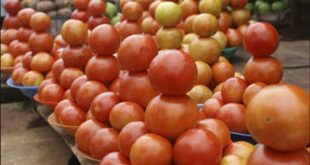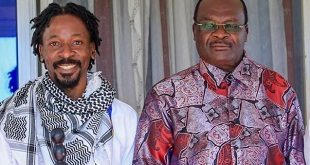
Nakapiripirit, Uganda | THE INDEPENDENT | Mark Lokiru a 27 year old youth from Pian, an ethnic group in Nakapiripirit district in Karamoja Sub region, grew up knowing cattle were the only means for a Karimojong man’s livelihood.
His father Peter Lotuke had lived by cattle rustling to amass more wealth for the family but the fantasy soon faded as government embarked on ridding the region of all illegal guns.
After the government started removing guns from them, Mr. Lokiru said they remained defenseless and they could neither protect their cattle nor conduct any raids to replace them.
He said yet their counterparts in Kenya, the Turkana who were still having guns instead turned onto them and raided all their cows. leaving them without asingle animals.
Lokiru said they could not follow their cows to Turkana land because they didn’t have guns but also, they were closely monitored by the army.
He added that they remained helpless for over three years surviving on burning charcoal but said it was also risky because some time they could still meet with armed warriors.
Mr. Lokiru with his other friends later realized that life can continue even without animals this was after they were trained by an NGO called Skills Empowerment for Alternative Livelihood for Karamoja (SEAL) in metal fabrication such as making oxen ploughs, bicycles, bricklaying and making lather out of animal’s skin.
Simon Lote one of the beneficiaries of the program a resident of Nakale village in Namalu sub county in Nakapiripirit district said the knowledge they acquired in metal fabrication has made them to understand that life can be manage without animals.
He told URN on Sunday that every day with his group members of three people fabricate their bicycles and oxen ploughs in Namalu trading centre.
He added that they get money on daily basis without any blood shedding, unlike those days when they getting money after shedding the blood of people.
“We buy metals from Mbale and make our oxen ploughs and bicycles which are much stronger than those coming direct from the factory and we are on the market,” he said.
Jackson Angolere, another former warrior and a resident of Namalera village in Namalu Sub county said they have also started training their own people in metal fabrication using the skills they got from SEAL.
“We are now business people not cattle raiders and in the coming two years Karamoja will be manufacturing its own bicycles and oxen ploughs with the brand “Made in Karamoja,” he said.
According to Angolere, they are looking at development or even the office of the prime minister to sign a contract with them to make oxen ploughs for the people of Karamoja.
“Instead of governmnet transporting the oxen ploughs from Kampala we can make them here so that Karimojong can get that money,” said.
Mr.Angolere said on daily basis they can make between 5 to 10 oxen ploughs depending on the demand from the public and one oxen ploughs goes at between shs 80,000 to 130,000 depending the material they have used for making.
He said only daily basis they get shs 400,000 when there is good sale like market days but bad days they can only sell two oxen ploughs.
“We have so far saved shs 4million since July last year in our account and our target is to open up a training centre where we can train others youth also so that they don’t get spoilt by boozing,” he said.
Mr. Patrick Tibwassimwe the program manager SEAL Karamoja region said when they introduced the program the district officials in Karamoja couldn’t believe that oxen ploughs and bicycles can be fabricated in Karamoja.
He said they have empowered 380 boys and girls with skills that can help them to create jobs themselves.
He said out of 380, eighty are girls who are weaving clothes and operating hair salons while the 300 boys are fabricating bicycles, oxen ploughs and building inputs in four Karamoja districts namely Moroto, Napak, Nakapiripirit and Abim.
Mr. John Nangiro the district LCV chairperson of Nakapiripirit hailed SEAL organisation for supporting the former cattle rustlers.
He said the skills the boys have acquired and started utilizing have created a big change in the life of the Karimojong people.
“This is what we expect our partners to do and if all of them do things like this then these boys will stop rustling,” he said.
********
URN
 The Independent Uganda: You get the Truth we Pay the Price
The Independent Uganda: You get the Truth we Pay the Price


